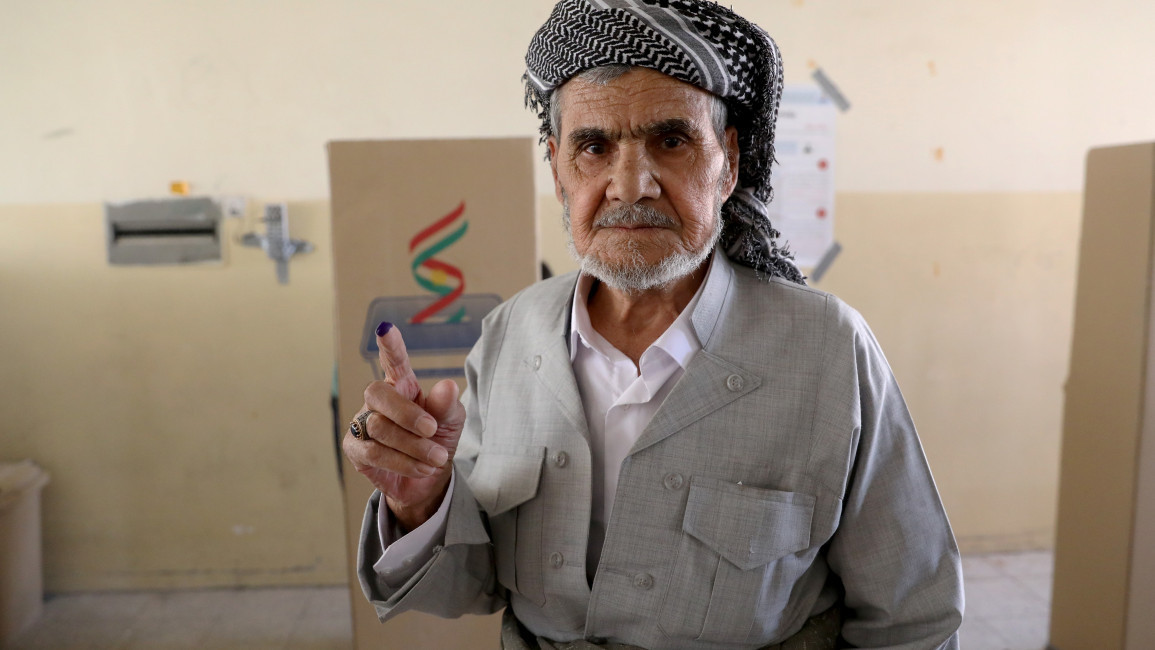Iraqi Kurdistan's parliamentary elections will not be held in February, Kurdish officials say
Parliamentary elections in the Iraq's Kurdistan region scheduled for 25 February will be delayed again due to legal and political issues, Kurdish officials and Iraq’s Independent High Electoral Commission (IHEC) have said.
Iraq's Federal Supreme Court had on 31 May ruled against extending the term of the Kurdistan region's parliament as contrary to the country's constitution, declaring the Kurdish legislature as terminated and ordering the Iraqi Independent High Electoral Commission (IHEC) to supervise fresh general elections in the region.
The last parliamentary election held in the region was on September 2018.
Originally slated for October 2022, the poll was rescheduled to November of the same year due to disagreements among political parties regarding the election law.
"The elections will not be held as scheduled. If the ruling Patriotic Union of Kurdistan (PUK) and the Kurdistan Democratic Party (KDP) settle their disputes, it might be delayed for May or June, if they do not agree, the elections will be delayed for a long time," Mohammed Haji Mahmoud, secretary general of the Kurdistan Socialist Party told the reporters in a press conference attended by The New Arab on Thursday in Sulaimaniyah.
The federal electoral commission has officially informed the Kurdistan Region Presidency that it cannot hold the Region's already-delayed parliamentary elections on the scheduled date, February 25, an official from the electoral body said on Wednesday.TNA contacted Jumana Al-Ghalay, IHEC’s spokesperson, but she was not immediately available to comment.
In a statement to Rudaw on Wednesday, Imad Jamil, head of the media team at IHEC conveyed that they have officially addressed the Kurdistan Region Presidency about their inability to hold much-delayed parliamentary elections on February 25.
“The Kurdish political leadership themselves do not want the elections to take place,” Mohammed Hakim, spokesperson of the Kurdistan Justice group told the reporters on Thursday.
The Kurdistan Region’s Presidency has yet to comment on the IHEC’s letter. A well-informed Kurdish source told TNA on condition of anonymity that the region’s presidency is now thinking of identifying a new date for the elections.
The source also clarified that even if the region’s presidency identifies a new date, holding the elections is not guaranteed until after Iraq's Supreme Federal Court rules on several lawsuits on the region’s electoral law and the minority's quota in the decades-old law.
Kurdish politicians from PUK have filed lawsuits in Iraq's top court asking for the dissolving of several articles about the minority's quota and the electoral districts in the region's election law.
After delaying its ruling on the issue several times, the top court has postponed again for 21 January.
"Postponing the Kurdistan Regional Parliament elections once again, with the blessing of the Federal Court and the Election Commission, and under the watchful eyes of the international community, is nothing but a clear violation of the principles of democracy and the end of what was called (the democratic experiment in the Kurdistan Region)," Shaswar Abdalwahid, president of the New Generation opposition party in the Kurdistan region and Iraq, recently wrote in a post on X.
PUK, a rival to the KDP, has claimed that the latter was exploiting the minority's quota for its partisan ends and appointing lawmakers who do not represent their communities.
The Kurdistan parliament includes 111 seats; with women required to make up a minimum of 30 percent, while 11 seats are allocated to parties that represent minority groups.



